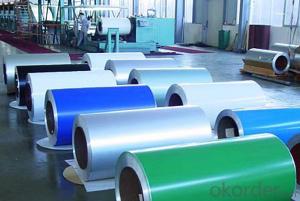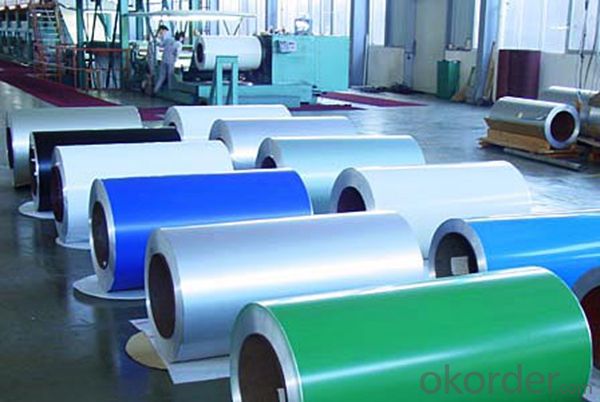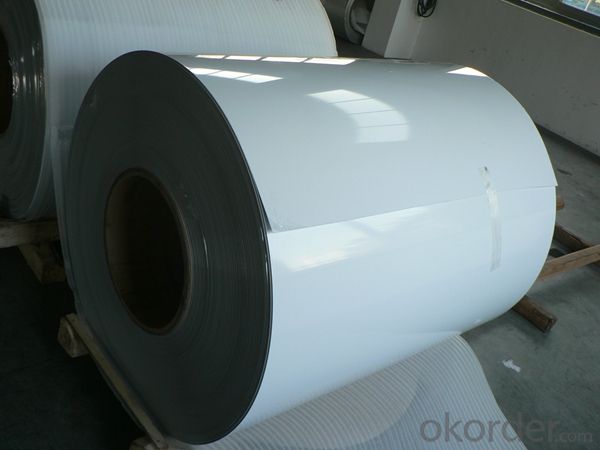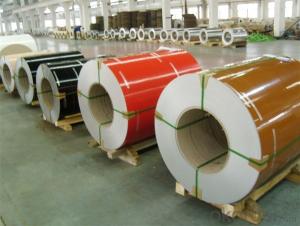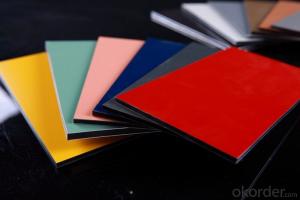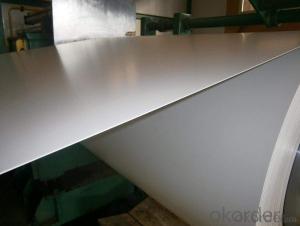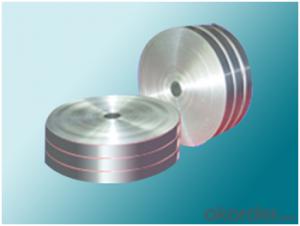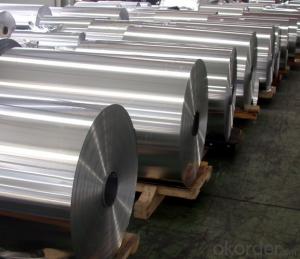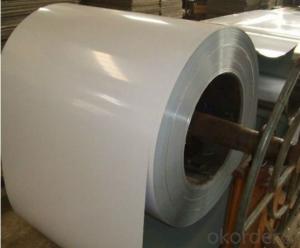Wholesale Aluminum Roof Coil - Color Coating Aluminum Coil PVDF Painting for Outer Doors
- Loading Port:
- Shanghai
- Payment Terms:
- TT OR LC
- Min Order Qty:
- 5 m.t.
- Supply Capability:
- 10000 m.t./month
OKorder Service Pledge
OKorder Financial Service
You Might Also Like
Specification
1. Specification of Color Coating Aluminium Coil PVDF Painting for Outer Doors
Material | Alloy Aluminum 1XXX,3XXX,5XXX or customer nominated |
Temper | T3, T4, T5, T6 |
Surface | Anodize, electrophoresis, powder coating,PVDF coating, wood grain painting, matted, etc. |
Colour | Any colour based on Standard Germany RAL Mark |
Length | Coating 6.5 meters, Anodizing 6.5 meters, Mill finish 5 meters |
Press Machine | 500-4000 tons all together 64 press lines. |
Fabrication | 1. Windows and doors; 2. Drilling; 3. Bending; 4. Cutting; 5. etc. |
Certificate | ISO 9001 |
Moulding | 1. Using our moulds, no fee; |
2. Using customer drawing, opening mould, usually about 10~50 tons then the moulding can be refunded. | |
3. Mould cost is negotiable base on the order quantity | |
Capability | Annual output 100,000 tons |
2. Application of Color Coating Aluminium Coil PVDF Painting for Outer Doors
(1).Interior: wall cladding, ceilings, bathrooms, kitchens and balconies, shutters, doors...
(2).Exterior: wall cladding, facades, roofing, canopies, tunnels,column covers , renovations...
(3).Advertisement: display platforms, signboards, fascia, shop fronts...
3. Feature of Color Coating Aluminium Coil PVDF Painting for Outer Doors
Be free from Oil Stain, Dent, Inclusion, Scratches, Stain, Oxide Dicoloration, Breaks, Corrosion, Roll Marks, Dirt Streaks and other defect which will interfere with use
4. Certificate:
SGS and ROHS(if client request, paid by client), MTC(plant provided), Certificate of Origin(FORM A, FORM E, CO), Bureau Veritas and SGS (if client request, paid by client), CIQS certificate
5. Image of Color Coating Aluminium Coil PVDF Painting for Outer Doors
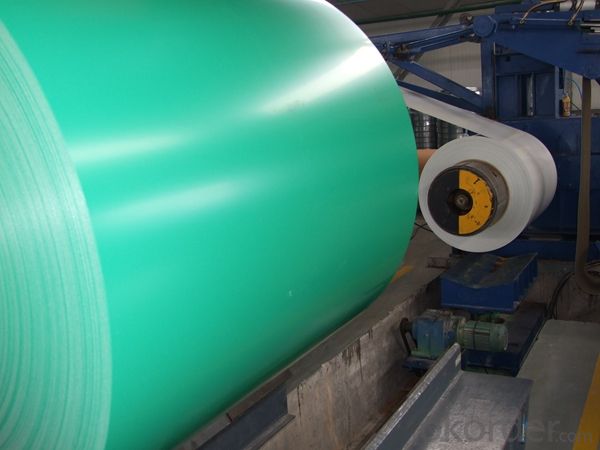
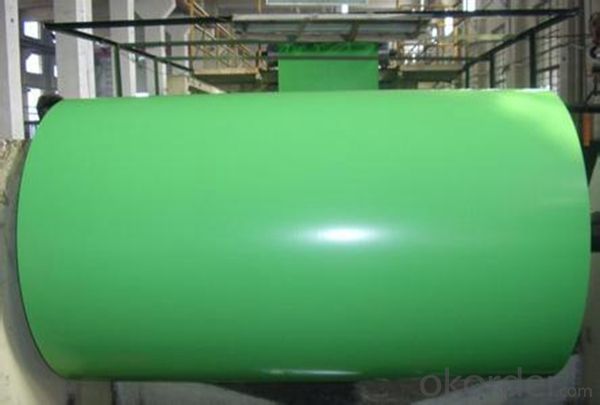
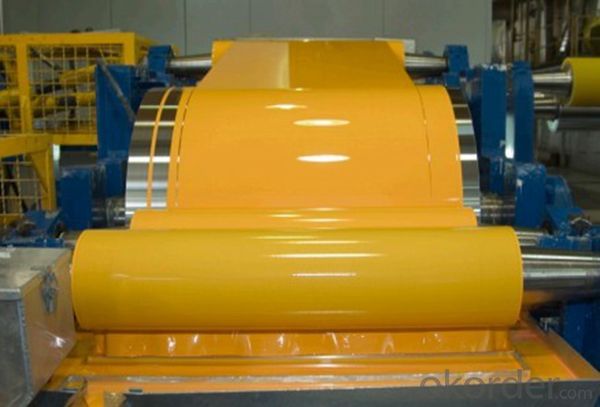
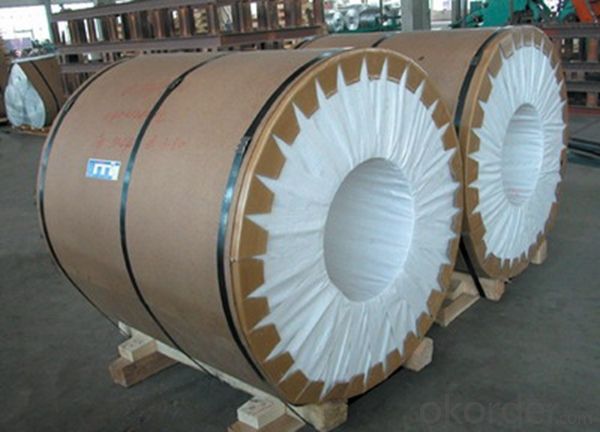
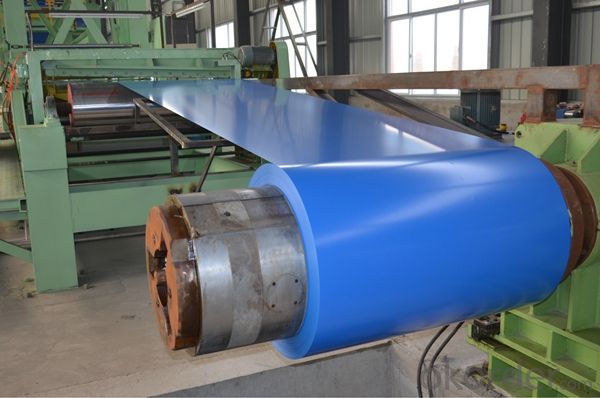
6. Package and shipping of Color Coating Aluminium Coil PVDF Painting for Outer Doors
eye to wall
eye to the wall
with wood pallet (wooded case also available)
7. FAQ
1) What is the delivery time?
Dpends on actual order, around 20 to 35 days
2)What is the QC system:
We have QC staff of 20 persons and advanced equipment, each production is with MTC traced from Aluminum ingot lot.
3) What market do you mainly sell to?
Australia, America, Asia, Middle East, Western Europe, Africa etc
- Q: What is the formula to calculate the wall thickness of aluminum coil?
- Aluminum coil thickness*aluminum coil width*aluminum coil curl*aluminum density (the density of aluminum alloy: 2.73, the density of pure aluminum: 2.71)
- Q: Hey everybody I'm trying to improve the performance of my vintage metal Coleman cooler I just got. To test it I filled it up with water bottles and 5lbs of cubed ice from Stop and Shop and left it in the closet with the dorm's AC set to 65. When I got back 28 hours later the ice was completely melted. The water still kept the drinks cool for several days after that, but I'm frustrated that the ice melted in a single day.
- It's perfect if you are just starting out or if you're a seasoned carpenter. you will like it for sure ! It has almost 20.000 woodworking plans and you have a CAD/DWG software to view and edit the plans. You have step-by-step instructions with photos and high quality blueprints and schematics. If you are a beginner this is the easiest way to start your woodworking projects, and if you already have experience you can anyway find a lot of interesting ideas!
- Q: Are aluminum coils suitable for lightweight applications?
- Yes, aluminum coils are suitable for lightweight applications. Aluminum is a lightweight metal with a density about one-third that of steel, making it an ideal choice for applications where weight reduction is a priority. Aluminum coils are commonly used in various lightweight applications such as aerospace, automotive, electronics, and packaging industries. They offer excellent strength-to-weight ratio, corrosion resistance, and thermal conductivity. Additionally, aluminum coils can be easily formed, welded, and machined, providing versatility in design and manufacturing. Overall, aluminum coils are well-suited for lightweight applications due to their lightweight nature and advantageous properties.
- Q: What are the different types of protective coatings for aluminum coils?
- There are several types of protective coatings available for aluminum coils, including polyester, polyvinylidene fluoride (PVDF), acrylic, epoxy, and polyurethane. These coatings provide varying degrees of protection against corrosion, UV rays, and other environmental factors, ensuring the longevity and durability of the aluminum coils.
- Q: Can aluminum coils be utilized as an insulating material?
- <p>Aluminum coils are not typically used for insulation. They are good conductors of heat and electricity, which makes them unsuitable for insulation purposes. Insulation materials should be poor conductors to prevent the flow of heat or electricity. Aluminum coils are more commonly used in applications where conductivity is desired, such as in electrical wiring or heat exchangers. For insulation, materials like fiberglass, mineral wool, or plastic foams are used because they resist heat flow effectively.</p>
- Q: Aluminum roll width 750mm, single layer thickness 6.5mm, diameter 400mm., how to calculate the weight of the aluminum roll?
- You can use the outside diameter, the inner diameter and the width to get the volume. You know the density and volume, and then you can find the weight naturally
- Q: Can a spring balance be used to accurately determine the weight of an aluminum coil?
- <p>Yes, you can use a spring balance to measure the weight of an aluminum coil, but the accuracy depends on the balance's specifications. Ensure the balance has a sufficient capacity to measure the coil's weight and is calibrated correctly. Keep in mind that spring balances are less precise than electronic scales, especially for heavy or sensitive measurements. For high accuracy, consider using an electronic scale designed for industrial use.</p>
- Q: Can aluminum coils be used in the production of automotive heat shields?
- Yes, aluminum coils can be used in the production of automotive heat shields. Aluminum is a popular choice for heat shields due to its excellent thermal conductivity and heat resistance properties. The use of aluminum coils allows for the creation of lightweight and durable heat shields that effectively dissipate and reflect heat away from critical components in the automotive system. Additionally, aluminum coils can be easily formed and bent to fit specific shapes and designs, making them highly adaptable for various automotive applications.
- Q: How are aluminum coils processed for specific surface coatings?
- Aluminum coils are processed for specific surface coatings through a series of steps. First, the coils go through cleaning and pre-treatment processes to remove any impurities and ensure proper adhesion of the coating. This step involves degreasing, etching, and rinsing. After pre-treatment, the coils are coated with the desired surface finish using techniques like coil coating or coil painting. This involves applying a layer of paint or coating material onto the surface of the coils using rollers or sprayers. Finally, the coated coils are cured or dried through heat treatment to ensure proper bonding and durability of the surface coating.
- Q: What are the common quality control measures for aluminum coil manufacturing?
- To ensure the production of high-quality aluminum coils, various quality control measures are implemented throughout the manufacturing process. These measures include: 1. Thoroughly inspecting the raw materials, specifically the aluminum alloy used for the coils, to identify any impurities or defects that could impact the final product. 2. Conducting dimensional inspections at different stages of the manufacturing process to ensure that the aluminum coils meet the required specifications in terms of thickness, width, length, and diameter. 3. Inspecting the surface of the aluminum coils for visual defects like scratches, dents, or marks, either through visual examination or specialized equipment such as cameras or scanners. 4. Testing the mechanical properties of the coils, including tensile strength, yield strength, elongation, and hardness, to ensure that they meet the necessary strength and performance requirements. 5. Regularly analyzing the chemical composition of the aluminum alloys used to manufacture the coils to ensure compliance with specific standards and identify any deviations that may affect the quality of the final product. 6. Inspecting the coating applied to the aluminum coils, if present, to ensure uniformity, adhesion, and thickness. This is important for proper corrosion resistance and an appealing aesthetic appearance. 7. Conducting packaging inspections before shipment to ensure that the coils are properly packed, labeled, and protected during transportation, while also checking for any damage or contamination that may have occurred during the packaging process. By implementing these quality control measures, any defects or deviations in the manufacturing process can be identified and rectified, thereby ensuring that the aluminum coils meet the required standards and customer expectations.
Send your message to us
Wholesale Aluminum Roof Coil - Color Coating Aluminum Coil PVDF Painting for Outer Doors
- Loading Port:
- Shanghai
- Payment Terms:
- TT OR LC
- Min Order Qty:
- 5 m.t.
- Supply Capability:
- 10000 m.t./month
OKorder Service Pledge
OKorder Financial Service
Similar products
Hot products
Hot Searches
Related keywords
